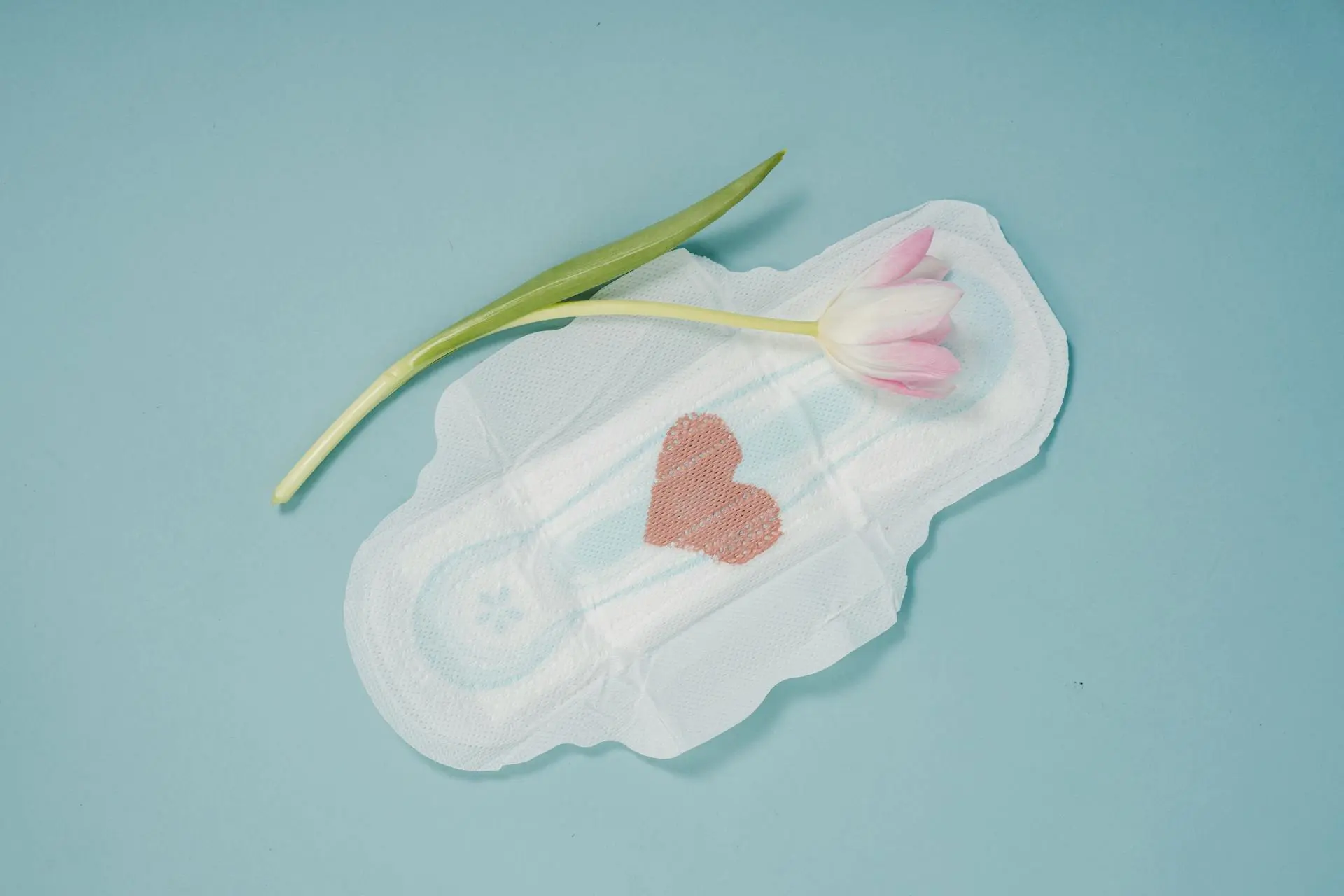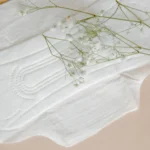For decades, standard menstrual pads have been the go-to choice for many women. Convenient, affordable, and widely available, they seem like a simple solution to a monthly need.
However, in recent years, growing concerns have shed light on the potential menstrual pads hazards. From chemical exposure to environmental impact, there’s more to those products than meets the eye…
Let’s unpack the findings, speculations, and shared experiences that are making women rethink their choices in menstrual care.

Photo by Sora Shimazaki
What’s in a Standard Pad?
At first glance, a menstrual pad seems harmless enough – soft, absorbent, and designed to keep you dry. However, most conventional pads are made with synthetic materials like rayon, polyester, and polyethylene. While these materials help with absorbency and leak-proofing, they come with risks:
- Chemical Additives: Many pads are treated with chlorine bleach to make them pristine white. This process can create dioxins, which are toxic byproducts linked to cancer, hormone disruption, and reproductive issues.
- Fragrances and Dyes: Added for odor control or aesthetics, these can irritate the sensitive vaginal area and may introduce allergens or harmful chemicals.
- Plastics: Found in the backing and even some absorbent layers, plastics can trap heat and moisture, creating a breeding ground for bacteria.
The Potential Health Risks
While more research is needed, growing evidence has sparked concern about the long-term use of standard pads. Here are the key worries:
1. Hormonal Disruption
Certain chemicals, like phthalates (used to make plastics flexible), may interfere with the body’s endocrine system. This could potentially lead to hormonal imbalances affecting everything from mood to fertility.
2. Increased Risk of Irritation and Infections
Synthetic materials and chemicals in standard pads can irritate sensitive skin, leading to redness, itching, and discomfort. The lack of breathability in plastic-backed pads can also create the perfect environment for bacterial or fungal infections.
3. Dioxins and Carcinogens
Although manufacturers claim that the dioxin levels in pads are low, critics argue that even minimal exposure over a lifetime can accumulate and pose health risks. Dioxins are classified as highly toxic and are known to harm reproductive and immune systems.
Real Stories from Real Women
Women around the world have shared personal experiences that echo these concerns. Common complaints include:
- Chronic irritation and rashes that disappeared when switching to natural alternatives.
- Worries about infertility or hormonal issues after prolonged use of conventional products.
- A growing preference for organic cotton pads or menstrual cups after learning about the potential risks.
These stories only add weight to the call for transparency and safer menstrual products.
Speculation or Real Threat?
The menstrual product industry is notoriously under-regulated. Unlike food or medication, pads and tampons aren’t required to list their ingredients. This lack of transparency leaves many women in the dark about what they’re exposing their bodies to every month.
Although manufacturers claim their products are safe, independent researchers and advocacy groups continue to push for stricter standards and more studies. The bottom line? Many women feel it’s better to err on the side of caution.
What Can You Do?
If this information has you reconsidering your current products, don’t worry, there are safer, healthier alternatives.
- Organic Cotton Pads, that are free from chlorine, fragrances, and synthetic materials.
- Menstrual cups, reusable pads, and period underwear are increasingly popular for their health and environmental benefits.
- Look for companies that prioritize transparency and safety in their menstrual products.
A Wake-Up Call for the Industry
The growing concern about standard pads isn’t just a passing trend… it’s part of a larger movement toward healthier, more sustainable menstrual care. As women become more informed, they’re demanding better options and more accountability from manufacturers.
Your period is a natural part (and a huge part!) of your life, and your menstrual care should be natural too. By choosing products that align with your health and values, you’re taking an important step toward a safer, more empowered future.
Feel free to leave your thoughts on this in the comments below. 🌷

